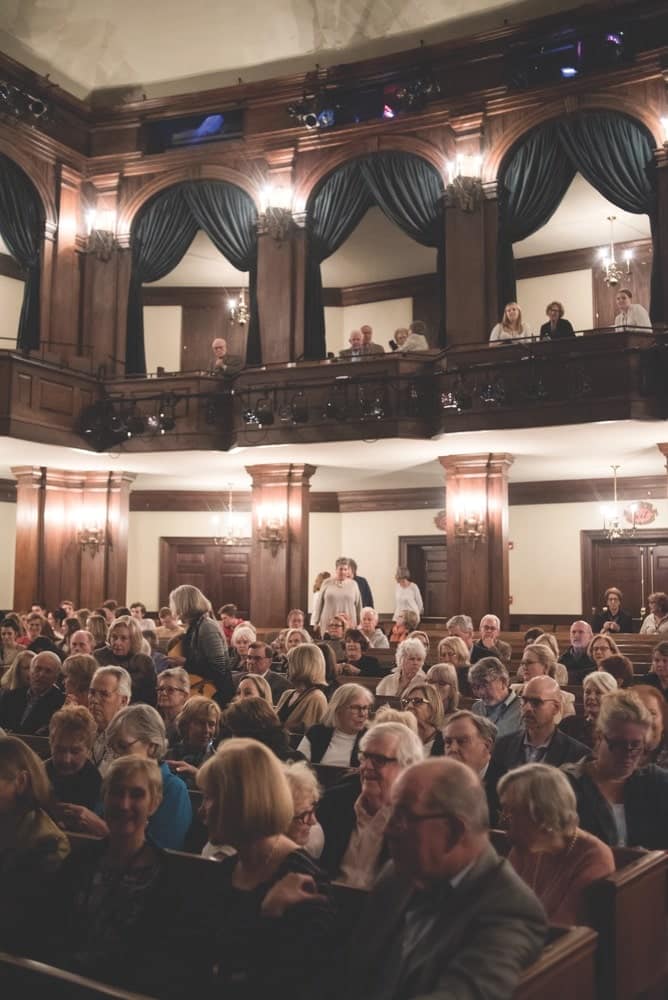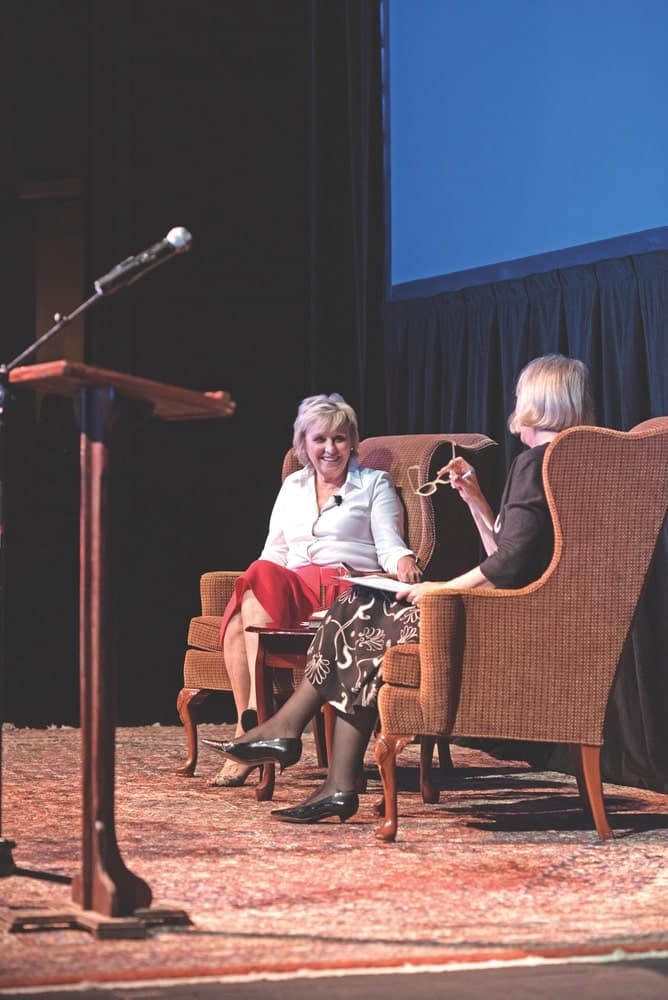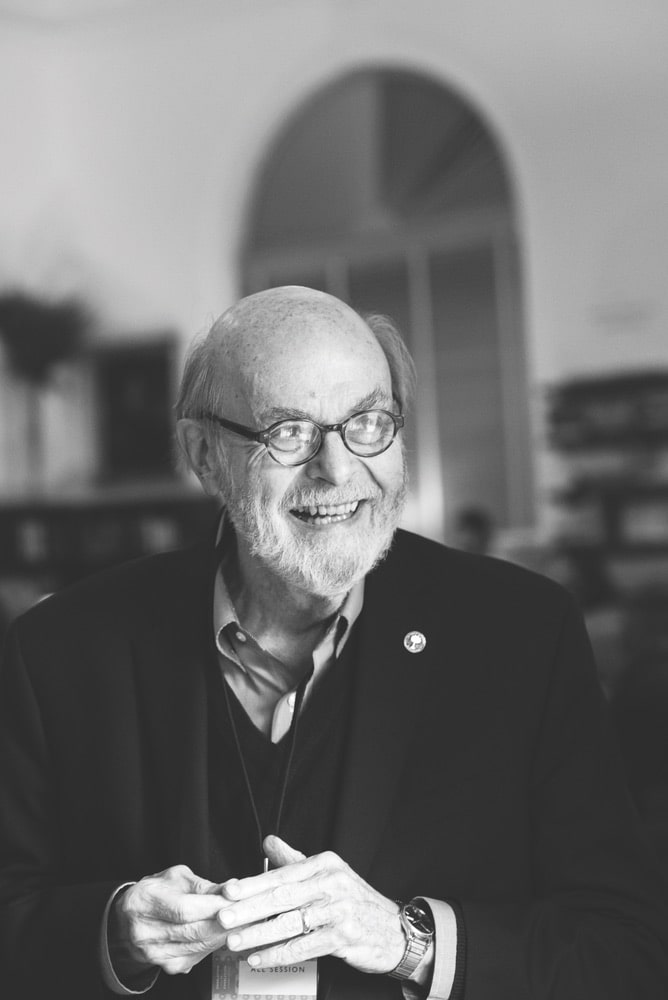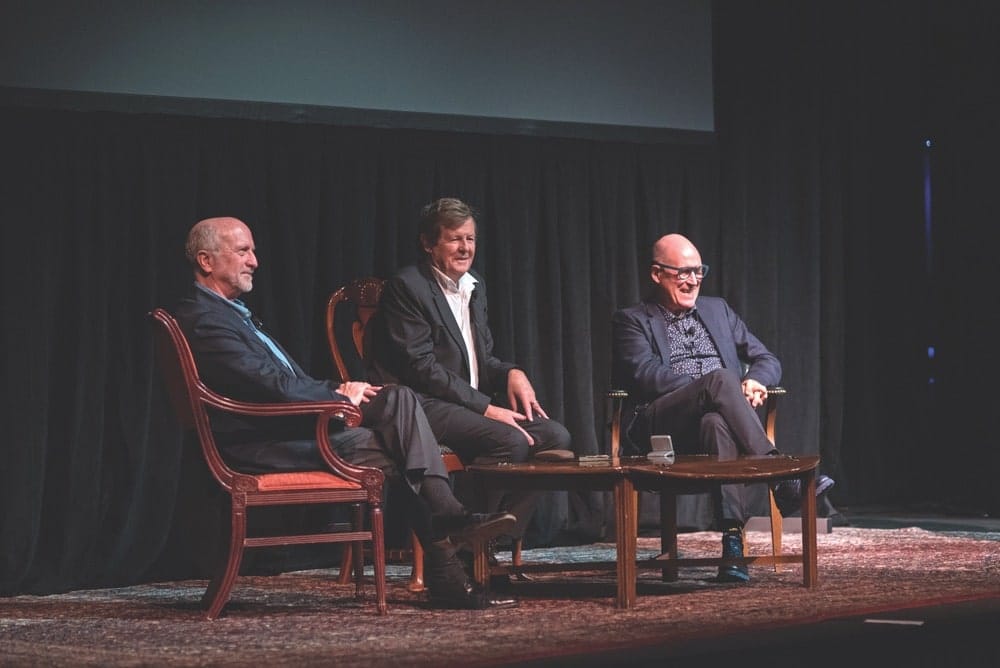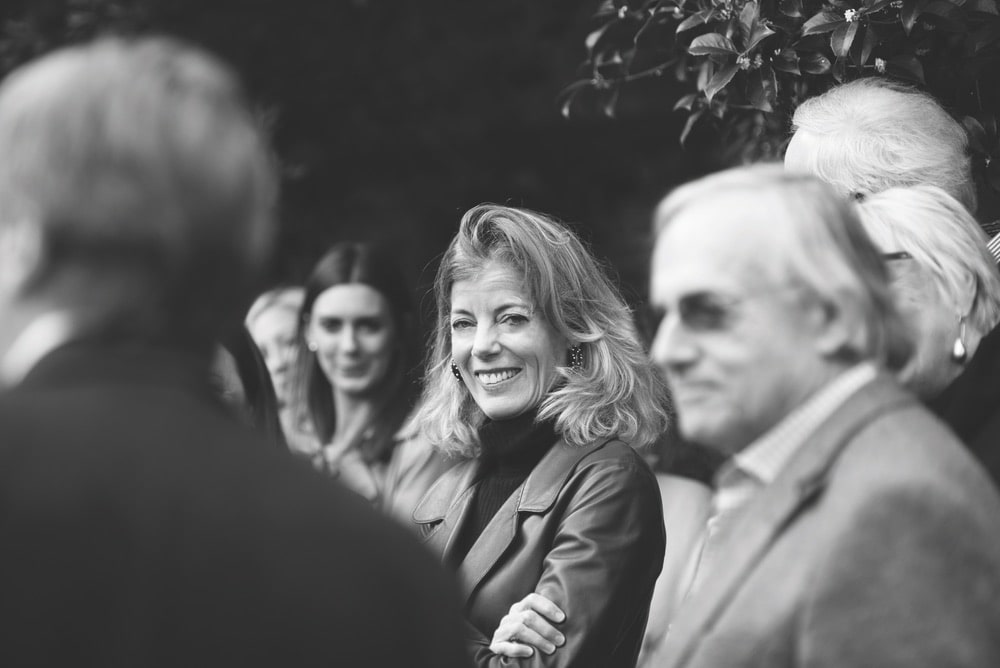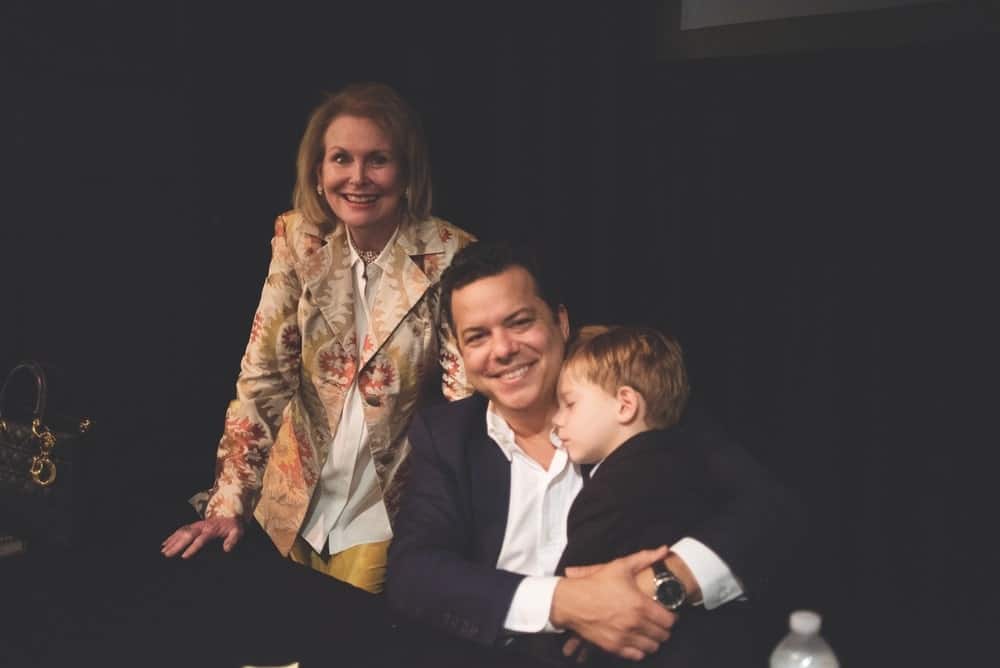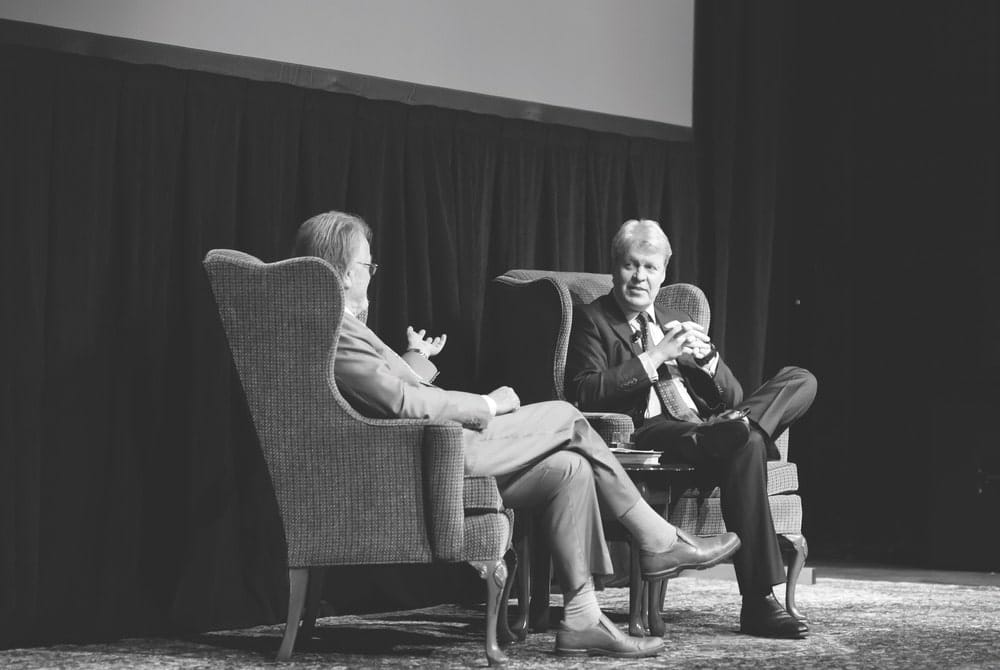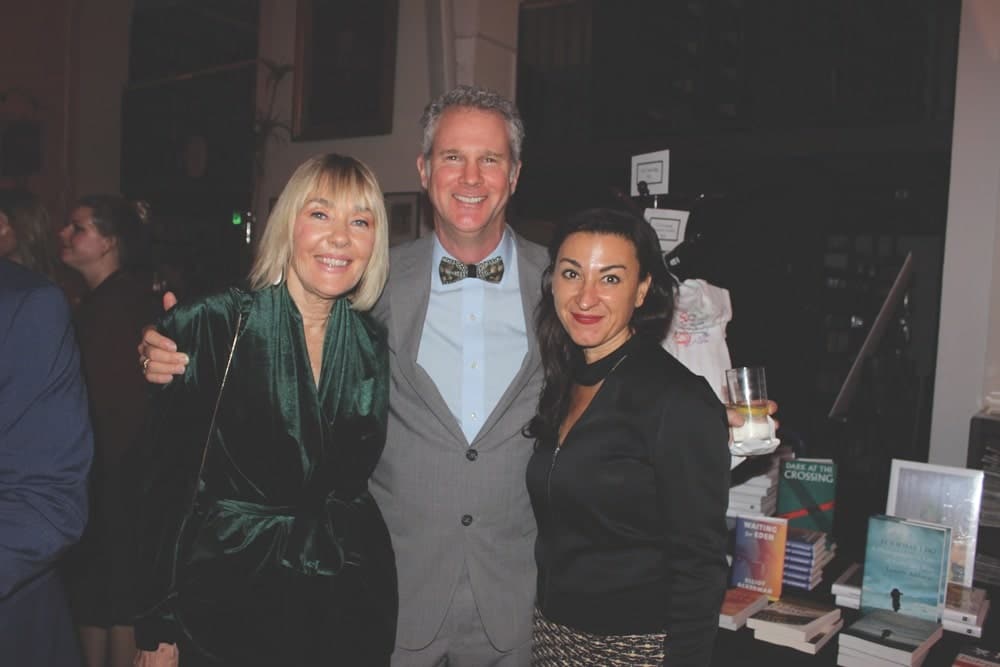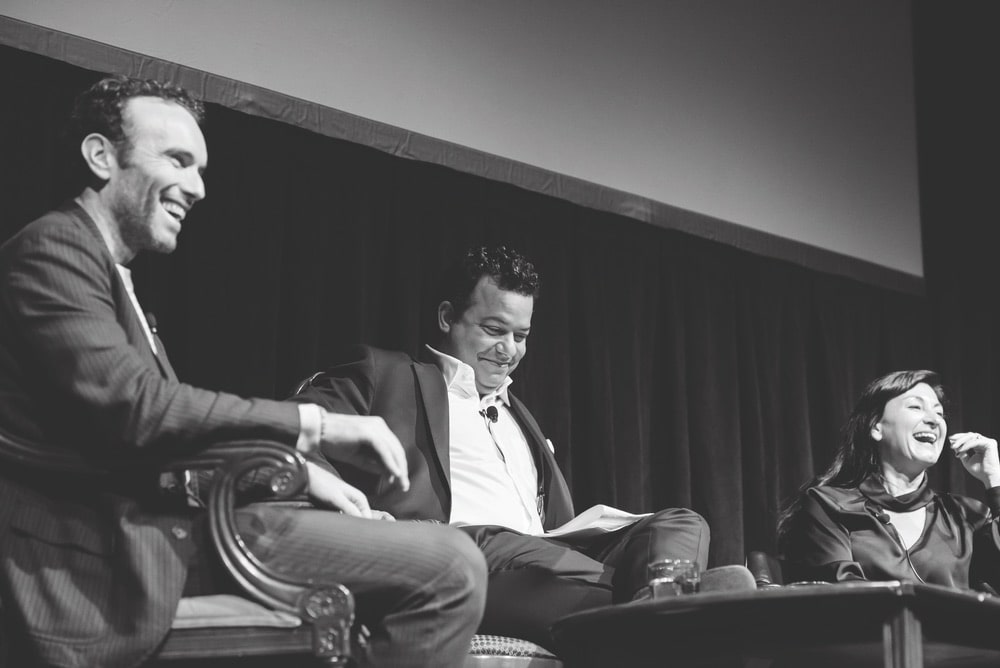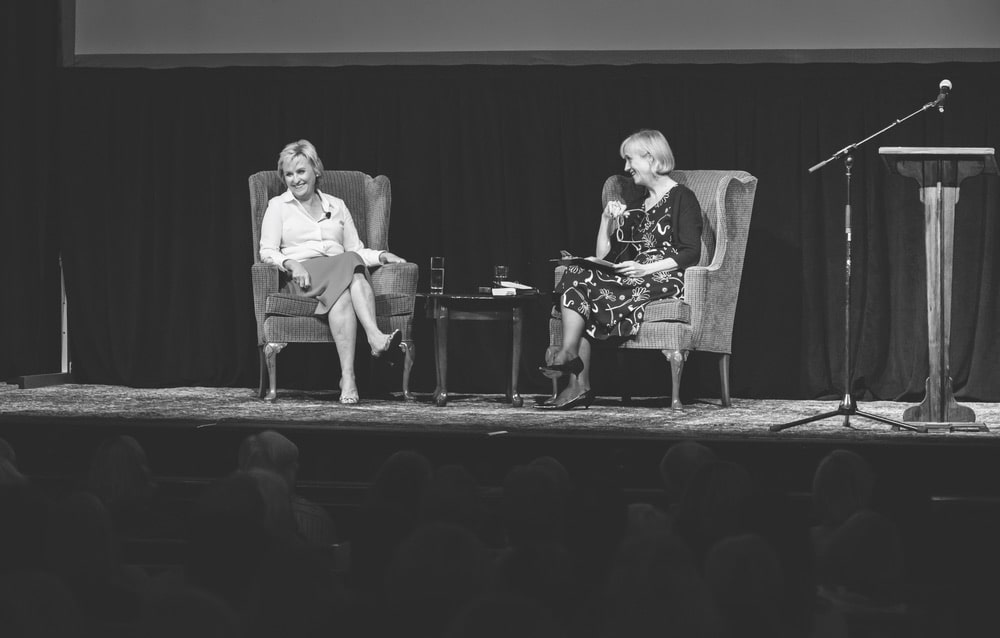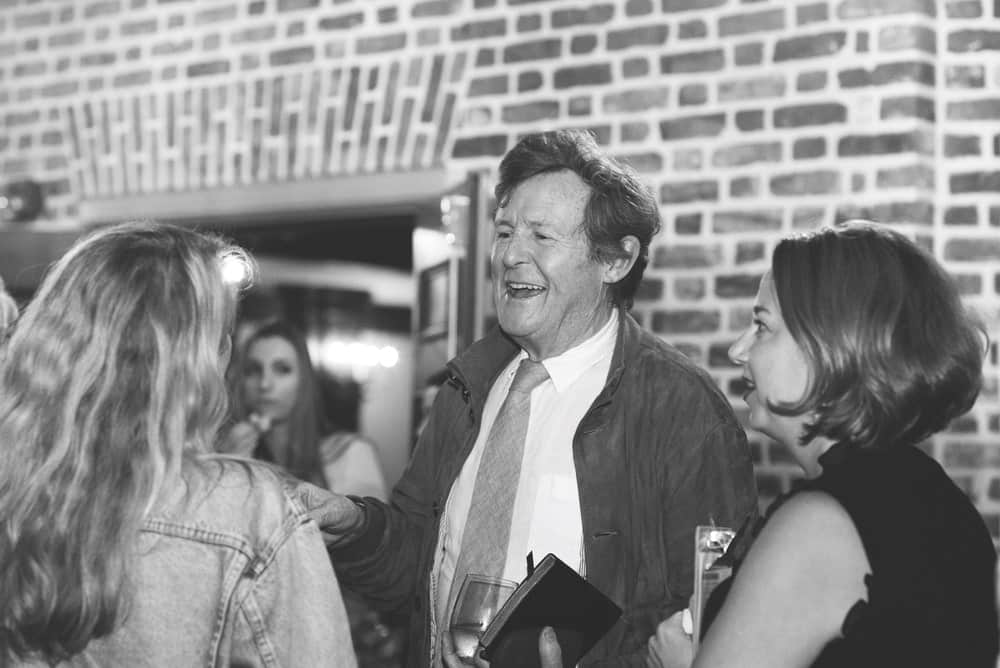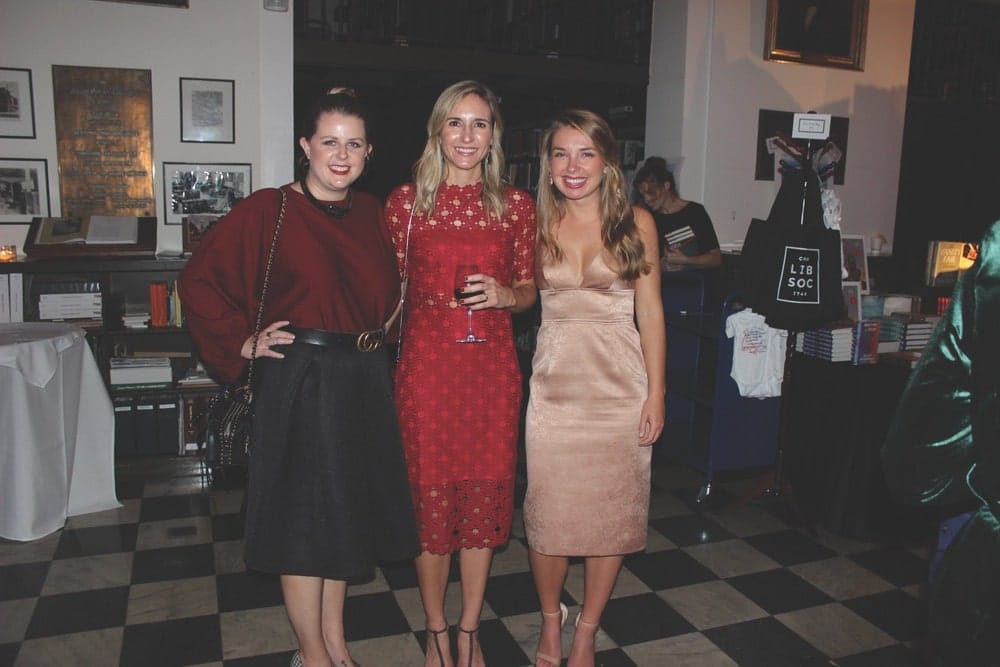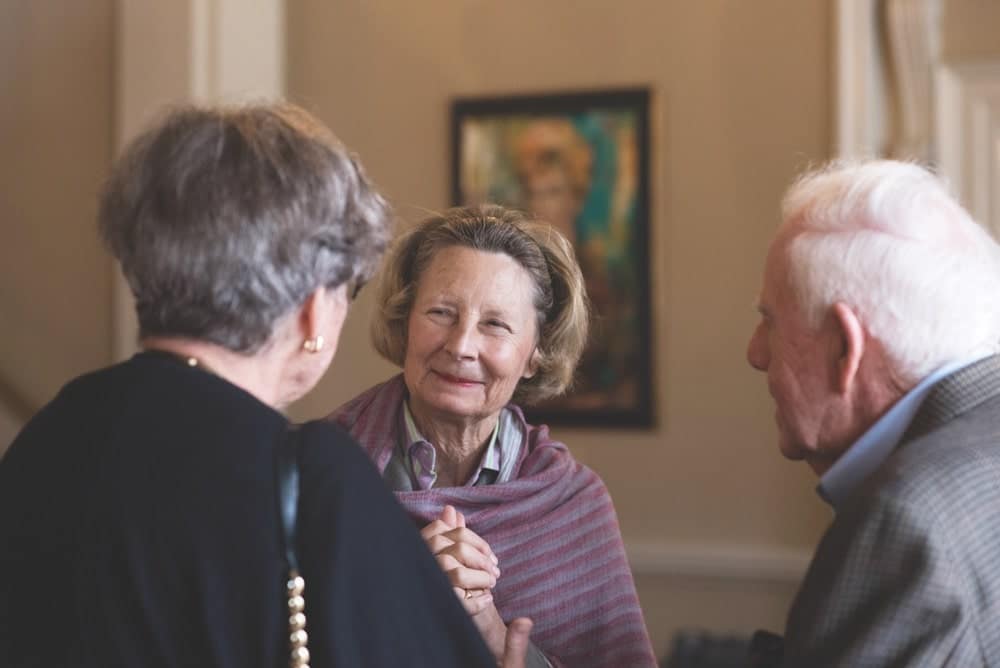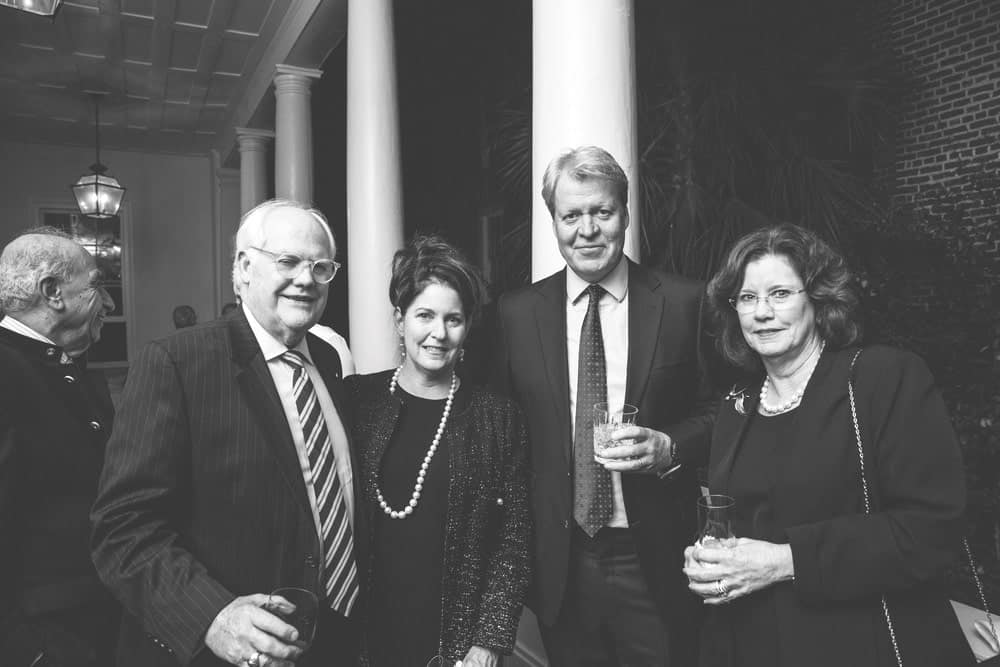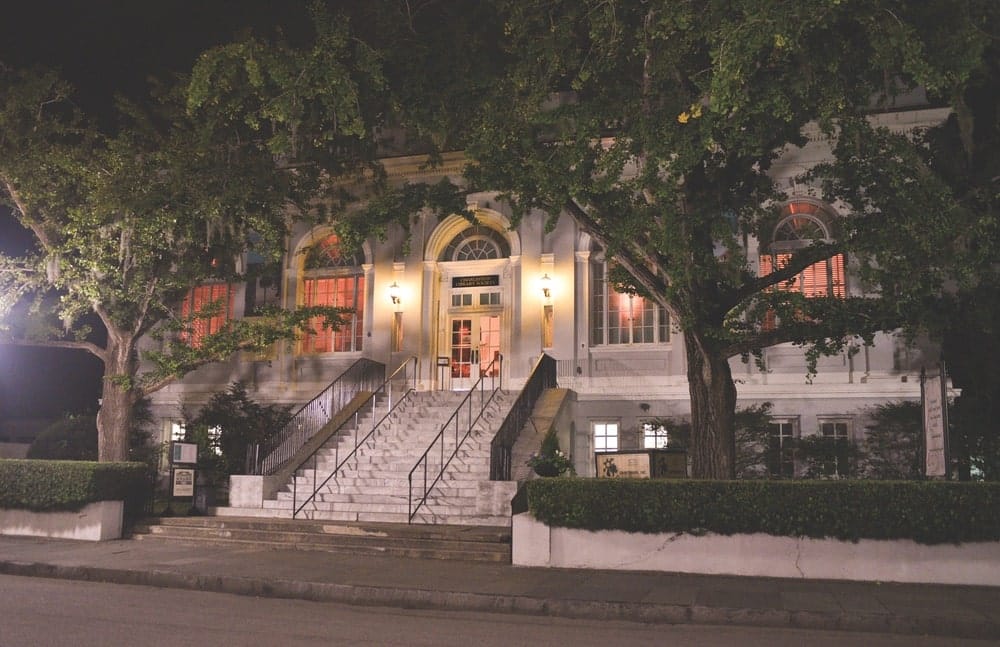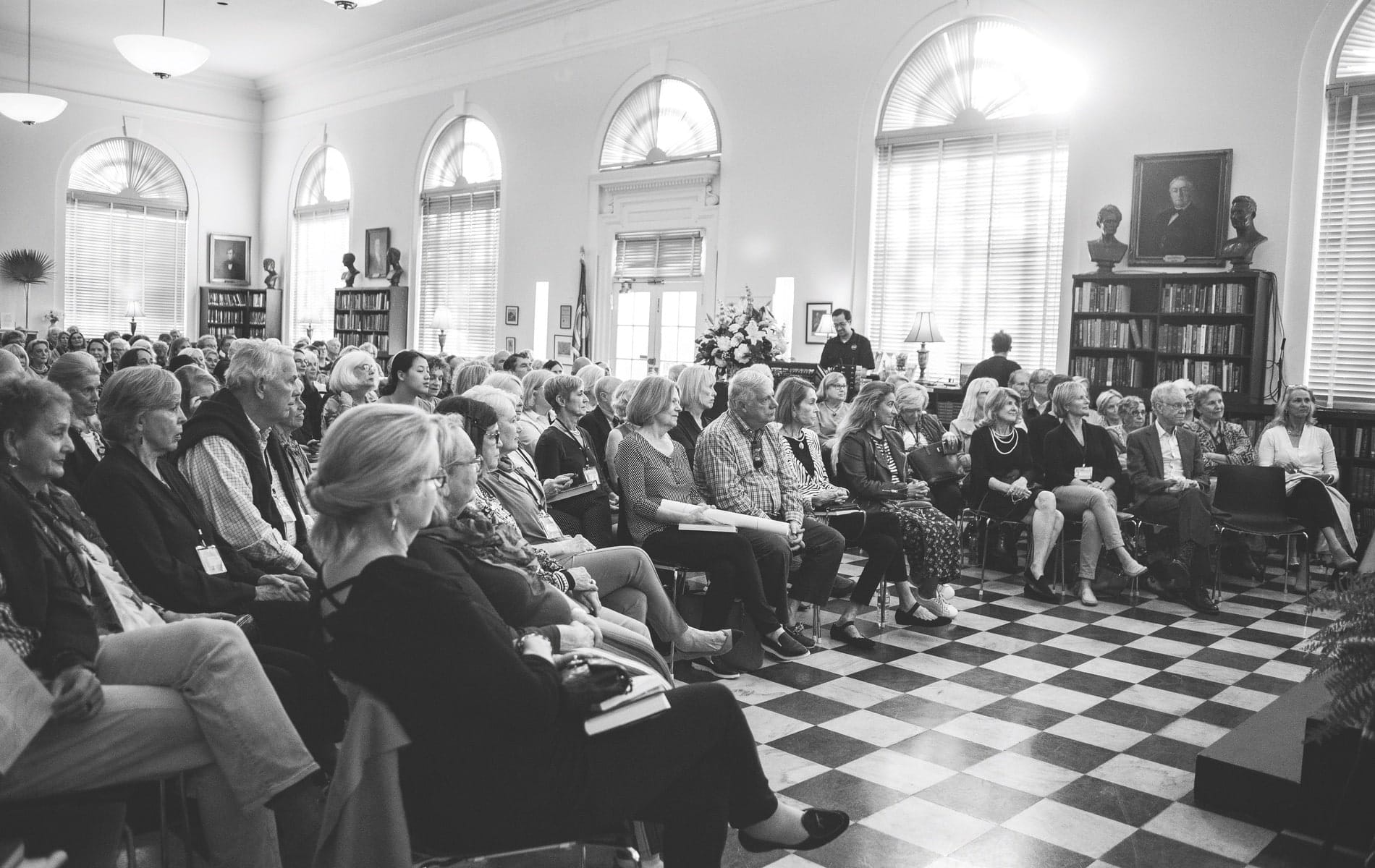
vie-magazine-charleston-to-charleston-literary-festival-hero-min
Patrons of the C2C Literary Festival 2018 gather at the historic Charleston Library Society for one of the weekend’s many engaging author salons.
The Literati Salon
A Festival for Intellects, Great Minds, and Engaging Conversation
By Suzanne Pollak | Photos by Leigh Webber Photography
The Charleston to Charleston Literary Festival (C2C) is a collaboration between the Charleston Farmhouse in Sussex, England—home to the thirty-year-old Charleston Festival, which is well known all over Europe—and the Charleston Library Society (CLS) in Charleston, South Carolina. The latter hosts two dozen well-known speakers and authors over four days and fourteen events every November in two historic landmark locations downtown: the elegant Charleston Library Society (the oldest cultural institution in the South and the second oldest lending library in the country) and our nation’s oldest theater, the Dock Street Theatre. C2C board member Walter Fiederowicz says, “The goal over time is to make this the preeminent festival in the US where books and ideas and creativity flourish.”
VIE sponsored the 2018 festival, hosting the Opening Night Candlelight Gala at the CLS and a discussion with Tina Brown, author of The Vanity Fair Diaries, at the historic Dock Street Theatre.
Charles Spencer, the ninth Earl Spencer and author of To Catch a King, recounts his experience at the Charleston to Charleston Literary Festival in November 2018: “C2C is a very civilized affair—the beauty of Charleston providing an unbeatable backdrop to a very sophisticated event, which draws an intelligent and appreciative audience. I had been told by English friends that it is the literary festival in the United States. And it is.”
So, who is the woman at the very beginning, thirty something years ago, with an idea that grew until it hopped over the Atlantic and bloomed in Charleston, South Carolina? London art dealer Deborah Gage is that visionary. We asked her:
VIE: What sparked the idea for the Charleston Farmhouse?
Deborah Gage: When I spearheaded the appeal to save Charleston Farmhouse in the 1980s, my mantra was “preservation versus change.” There was no point to saving Charleston if it was going to be changed in the process, becoming a shrine. Rather, Charleston had been the touchstone for thought, ideas, creativity, and gathering together of artists, writers, thinkers, mathematicians, economists, composers, and musicians for sixty years; thus this buzz and ferment should continue—which gave birth to the Charleston Festival in Sussex. Given that I lead a transatlantic life, and as I enlisted support to save Charleston on both sides of the pond, I realized there was a shared interest in this kind of colloquium in both places. So it was only a matter of time that this festival would have a dual life, once it had found its feet and was firmly established in the UK.
Rather, Charleston had been the touchstone for thought, ideas, creativity, and gathering together of artists, writers, thinkers, mathematicians, economists, composers, and musicians for sixty years; thus this buzz and ferment should continue—which gave birth to the Charleston Festival in Sussex.
VIE: What did you want to achieve? Is it being achieved? What are the long-term goals?
DG: My own dream, ultimately, when we have achieved a track record to merit the underwriting, is to see the best of the Sussex May event speakers come to the US, and vice versa: the best of the US November speakers go to Sussex the following May. That way, we would become one of the first truly transatlantic festivals!
VIE: How do you get such a perfect mix of speakers?
C2C artistic director for thirty years Diana Reich weighs in:
Diana Reich: An ideal mix of speakers would all be excellent of their kind in terms of quality, whatever the genre (e.g., fiction, nonfiction, drama, film, poetry). I do start with a wish list that is based on reading and reviews of contemporary authors, consciousness of topics and ideas that are in the zeitgeist, and a need to achieve a balance (well-known versus younger authors, female versus male contributors, diversity, representing different genres, etc.). A wish list has to be adaptable depending on circumstances such as speaker availability. The most important attribute of a literary programmer is the ability to move on when necessary and to seize or create new opportunities.
- Dock Street Theatre, located in the beautiful historic French Quarter of Charleston, South Carolina, is the country’s oldest theater still in use.
- Tina Brown
- Dr. Layton McCurdy
VIE: Do you think of these two festivals as literary or as festivals of ideas?
DR: I think of them as both literary festivals and festivals of ideas. Great literature is a tried-and-tested way of introducing and communicating new ideas, from the classics to modern work. Stories and books that endure are usually many layered and stimulate thought and discussion in different eras.
VIE: Did you come up with the format of conversations, with an interlocutor asking questions? Do authors like this better than reading from their books?
DR: I am not sure whether I was the originator of this concept, but I have embraced it and adhere to it most of the time, and it has been replicated elsewhere. Authors sometimes need convincing that this is the best way to do themselves justice. In my experience, it is far more engaging and dynamic than a solo reading or talk.
VIE: Are literary festivals one of the best ways for authors to sell their books in today’s weird publishing world?
DR: Absolutely, yes! An appearance at a well-run literary festival only reaches the audience that attends an event. Most festivals are promoted and marketed very widely, so authors who are taking part are drawn to the attention of a large reading public.
VIE: I am sure you get new authors who want to be included. How do you deal with authors who ask if they can appear?
DR: This is one of the most difficult aspects of the role. It is essential to be selective and discriminating, especially for boutique festivals such as ours—by that I mean festivals with a relatively small number of carefully curated sessions. Larger festivals, with hundreds of sessions in different venues, can accommodate a wider range of participants. It is important not to raise expectations but to be straightforward. I usually thank them for their interest in the festival and explain that as a small festival, we are only able to respond positively to a tiny percentage of authors who approach us. The reality is that we hardly include authors who approach us in the first instance. Virtually all speakers are invited, and some are wooed for years.
- Christopher Dickey, David Hare, and William Nicholson discuss “The Demise of Democracy” at Dock Street Theatre.
- Suzanne Pollak
- Janice Waring and John Avlon
- Author Bernard Cornwell speaks with Charles Spencer, the ninth Earl Spencer, on the latter’s latest historical fiction novel, To Catch a King: Charles II’s Great Escape.
- Lisa and Gerald Burwell with Lynsey Addario
- Author Elliot Ackerman, CNN senior political analyst John Avlon, and photographer Lynsey Addario engage at Dock Street Theatre for “Chronicling Conflict.”
VIE: Has your role changed over thirty years or have you always been the artistic director?
DR: My role has only changed insofar as I was originally artistic director of a tiny series of events with audiences of about thirty in the Apple Shed in Charleston, Sussex—former home of the Bloomsbury group artists Vanessa Bell (sister of Virginia Woolf) and Duncan Grant. This has now become a prestigious annual festival each May, which takes place in a marquee that seats four hundred and hosts around a hundred participants. It is celebrating its thirtieth anniversary in May of 2019. It also spawned a minifestival, Small Wonder, which takes place in autumn and focuses on short stories and short-form writing. When we founded the Charleston Literary Festival in Sussex, it was a relatively original idea. There were only two or three others in the UK, established around the same time. There are now over three hundred literary festivals in the UK.
VIE: Why do you think that the UK has so many literary festivals?
DR: The UK has a very rich literary tradition. It is a small island with a fairly homogeneous culture and it is easy for ideas to catch on and spread. It is also easy for authors to travel to most parts of the country. England has a strong communal tradition, whether it be amateur dramatics, choirs, or local sports. To some extent, literary festivals are an extension of this. Also, the UK has a national Arts Council (which was actually founded by Keynes) that invests heavily in the arts and culture. It is funded by the government but not run by politicians.
VIE: What do you think is the main difference between C2C and the Charleston Festival?
DR: So far, the main difference is growth. The Charleston Festival in Sussex is a venerable thirty years old. C2C is just two years old; however, it has taken root far more quickly than I had anticipated. Also, America is a continent and the UK a small country—this is bound to make a difference in terms of distances that authors are prepared to travel. C2C is probably still a little more informal than Charleston, Sussex. The biggest difference is that there is no tradition of receptions and parties woven into UK festivals. That would be problematic in Charleston, Sussex, which is a rural location. It is a delightful extra element in Charleston, South Carolina.
Also, they have discovered writers by attending an event at the festival that they would never have come across or might have dismissed. A literary festival is a very convivial experience; lifelong friendships are frequently established.
VIE: Have you ever heard from past audience members that attending the festival changed their lives in some way?
DR: Regarding life-changing experiences, people have said to me on many occasions that hearing an author or discussion has been transformative in terms of their thinking and feelings about various issues. Also, they have discovered writers by attending an event at the festival that they would never have come across or might have dismissed. A literary festival is a very convivial experience; lifelong friendships are frequently established. As far as speakers are concerned, there have been some romances—probably among the audience as well, although I do not know this. Literature is a wonderful vehicle for engendering empathy; it allows us to inhabit different lives. That is bound to change the way we think and feel on many occasions. This can happen by solitary reading. Drama and film can have the same effect, but literature is more contemplative.
VIE: Thank you, Diana!
- Former Vanity Fair and New Yorker editor-in-chief Tina Brown (left) speaks at Dock Street Theatre on her many publishing roles and her latest book, The Vanity Fair Diaries.
- Author and playwright David Hare
- Jordan Staggs, Tracey Thomas, and Meghan Ryan
- Deborah Gage, savior of the Charleston Farmhouse and visionary of the Charleston to Charleston Literary Festival.
- Vic Brandt, Sarah Horton, Charles Spencer, and Anne Brandt
- The beautiful facade of the Charleston Library Society
Stephen Greenblatt, author of Tyrant: Shakespeare on Politics; Will in the World; and The Swerve: How the World Became Modern, says of C2C, “What could be better—richly stimulating conversation about books from a dazzling array of writers and the legendary beauty and hospitality of Charleston? The hospitality extended to receptions in a succession of elegant houses, each fascinating and historically resonant. I feel truly grateful that this memorable pleasure came my way!”
A highlight of the 2018 festival was its opening night film screening of Denial, which recounted the true story of Deborah Lipstadt, author of Denying the Holocaust: The Growing Assault on Truth and Memory. She attended the festival and spoke on her book, as well. “The festival was an intellectual, invigorating experience,” she says. “I was delighted by the range of topics that was covered. I was challenged to think. What more could one ask from a festival?”
Madeline Miller, author of Circe, perhaps sums it up best: “The C2C festival is a book lover’s paradise, filled with terrific author talks, engaged audiences, and passionate organizers. I was so glad for the opportunity to be part of it!”
— V —
To view more images for the Charleston to Charleston Literary Festival, click here.
For information and tickets, visit CharlestontoCharleston.com.
Share This Story!
KEEP UP WITH THE LATEST STORIES FROM VIE



